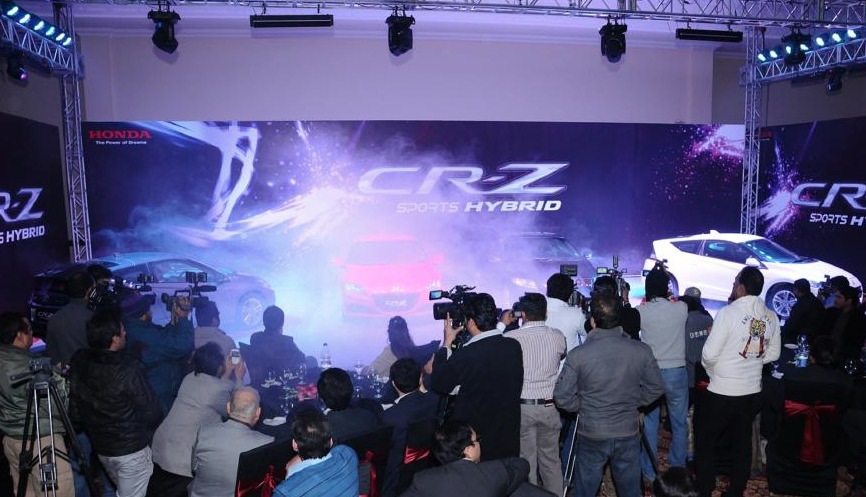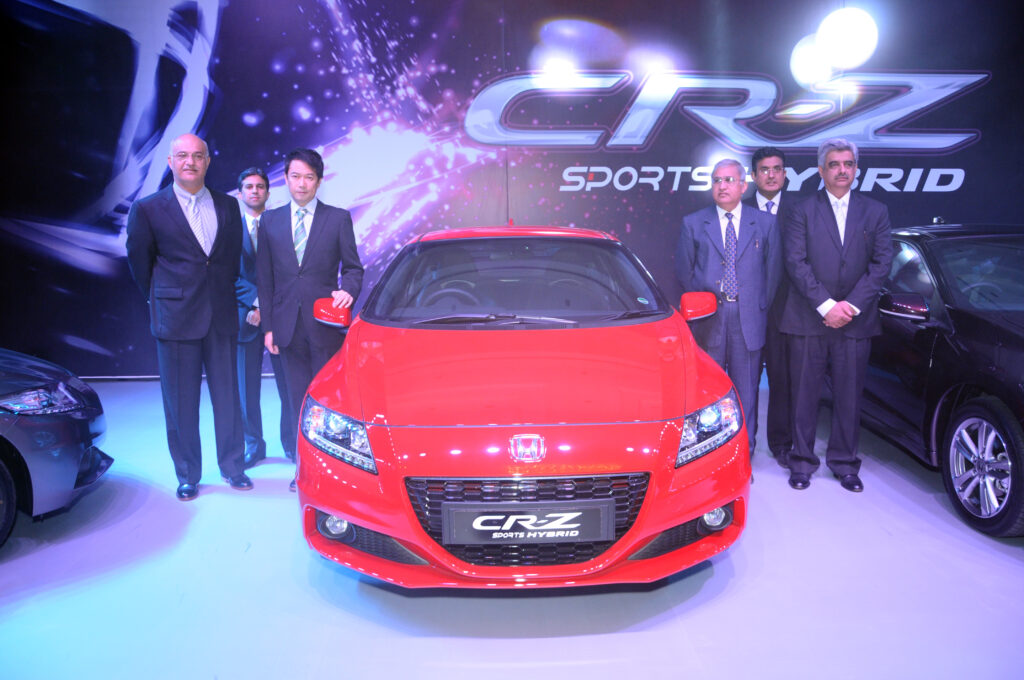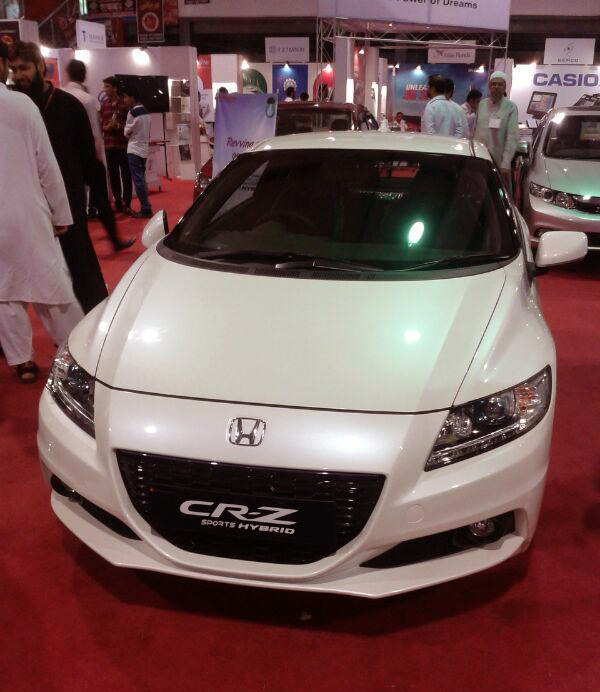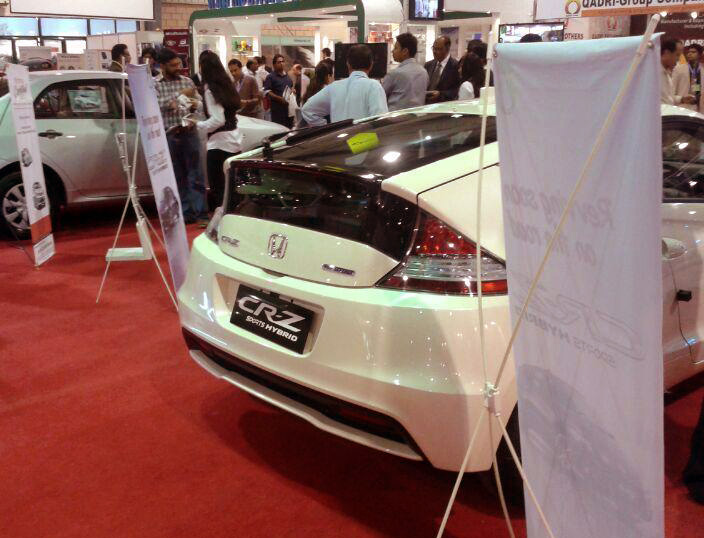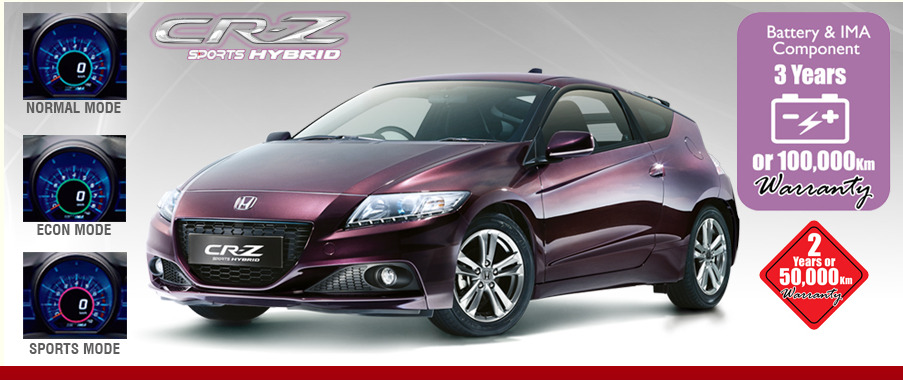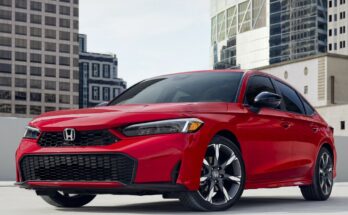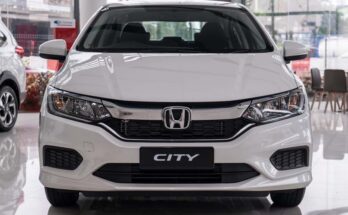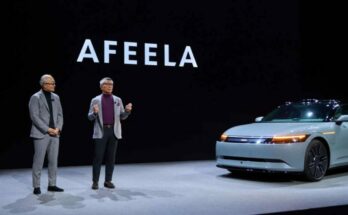Pakistan is known for its limited options when it comes to purchasing brand-new cars. With the market dominated by three major players, often referred to as *The Big Three*, choices have been particularly scarce, especially since the 1990s.
Due to the limited availability of new locally assembled options, the Big Three (Suzuki, Toyota, and Honda) occasionally experimented with offering CBU products, most of which ended up as marketing disasters. The 1st gen Honda HR-V, Toyota Prius, Toyota Rush, Suzuki Vitara, Suzuki Kizashi, and Suzuki Mega Carry, etc were some of the CBU products that failed miserably and were never able to win the hearts of the customers.
Related: Imported Cars That Are Launched For Nothing
One such example in Pakistan is the Honda CR-Z, launched by Honda Atlas in December 2013. It was priced at PKR 32.69 lac for the manual version and PKR 34.19 lac for the automatic variant, with an additional charge of Rs 80,000 for metallic colors.
Scenes from the Honda CR-Z launch in Pakistan
This price tag might look very competitive to you today since the 12-year-old globally obsolete 2nd-gen Kia Picanto in Pakistan is currently priced as high as PKR 38.25 lac. However back in those days the flagship Honda City Aspire was available at PKR 16.34 lac for manual, and PKR 17.65 lac for the Prosmatec variant. Whereas in 2013, the 9th gen Honda Civic was priced between PKR 21.99 lac and PKR 23.19 lac. So the CR-Z was almost twice as expensive as a top-spec City and almost 45% more expensive than the flagship Civic.
Honda CR-Z
The Honda CR-Z made its debut in international markets in 2010 to acclaim for its innovative style and the novelty of incorporating an eco-friendly gasoline-electric combo system in a sporty vehicle. The package promised to be a modern spiritual incarnation of the tuner-classic CR-X, blending the best of Honda’s latest eco-friendly technology with its heritage for spirited driving.
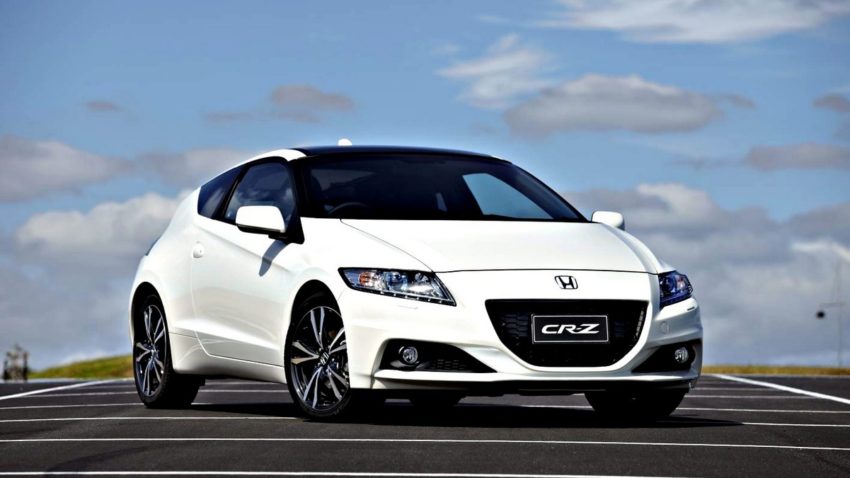
The CR-Z was powered by a 1.5L (1,497 cc) i-VTEC SOHC 16-valve four-cylinder engine, assisted with Honda’s Integrated Motor Assist (IMA) hybrid-electric system. A 6-speed manual transmission and CVT automatic were the transmission options available. The gasoline engine contributed 111 hp and 144 Nm while the electric motor produced 10 kW and 79 Nm. The system delivered a combined peak output of 121 hp and 174 Nm for manual, and 167 Nm on CVT models.
Honda CR-Z displayed at PAPS 2014, and its banner ad that was placed on Honda Pakistan’s website
However, for the one launched in Pakistan, Honda Atlas claimed 134 hp of power at 6,600 rpm. And with a Plus Sport System, the “S+” button on the steering wheel was able to deliver increased acceleration. Excerpts from Honda Atlas’ press release read:
“CR-Z, the sleek two-door coupe will appeal to a younger set or empty nesters who want a “green” car with a bit of style. The CR-Z offers three drive modes: sport, normal, and economy. Sport mode enhances the car’s performance, while economy mode maximizes fuel economy.”
Was CR-Z a Failed Marketing Exercise?
But the CR-Z was never a successful product not just for Honda in Pakistan, but everywhere else. It was a compromise solution that never really scored high in fuel economy nor in sporty performance. Globally, its sales peaked at 33,745 vehicles in 2010 and slumped to just 4,271 units in 2016. Due to dismal sales performance, Honda announced in 2016 to officially kill the CR-Z with no replacement planned in the pipeline. The CR-Z was subsequently removed from Honda Atlas’ lineup and the brief stint of CR-Z in Pakistan was over.
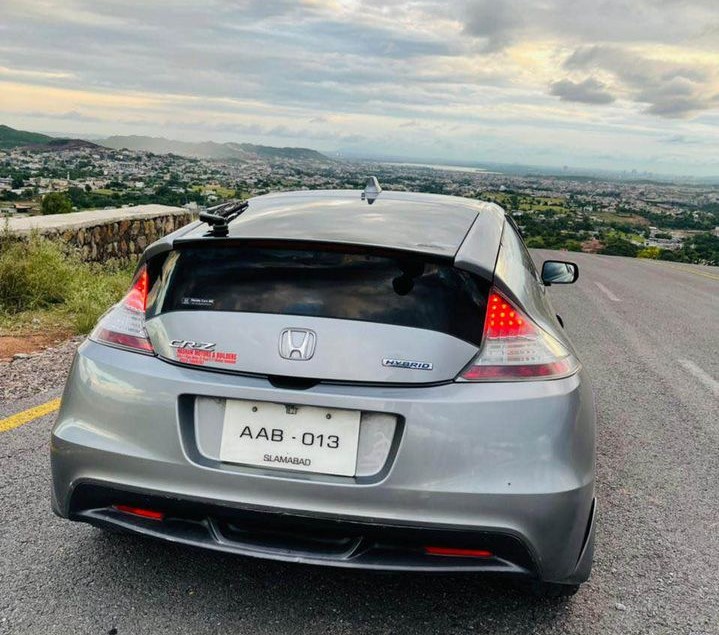
Honda’s press release makes it clear that the CR-Z was marketed at young brats, the children of the wealthy who had the means to purchase a 2-door recreational vehicle that boasted both fun and fuel efficiency. It was never going to be a volume seller for sure. Although the Honda Atlas managed to sell a limited number of cars throughout the 2.5 years of CR-Z in our country, the majority of those who had the means didn’t view it as a worthwhile option.
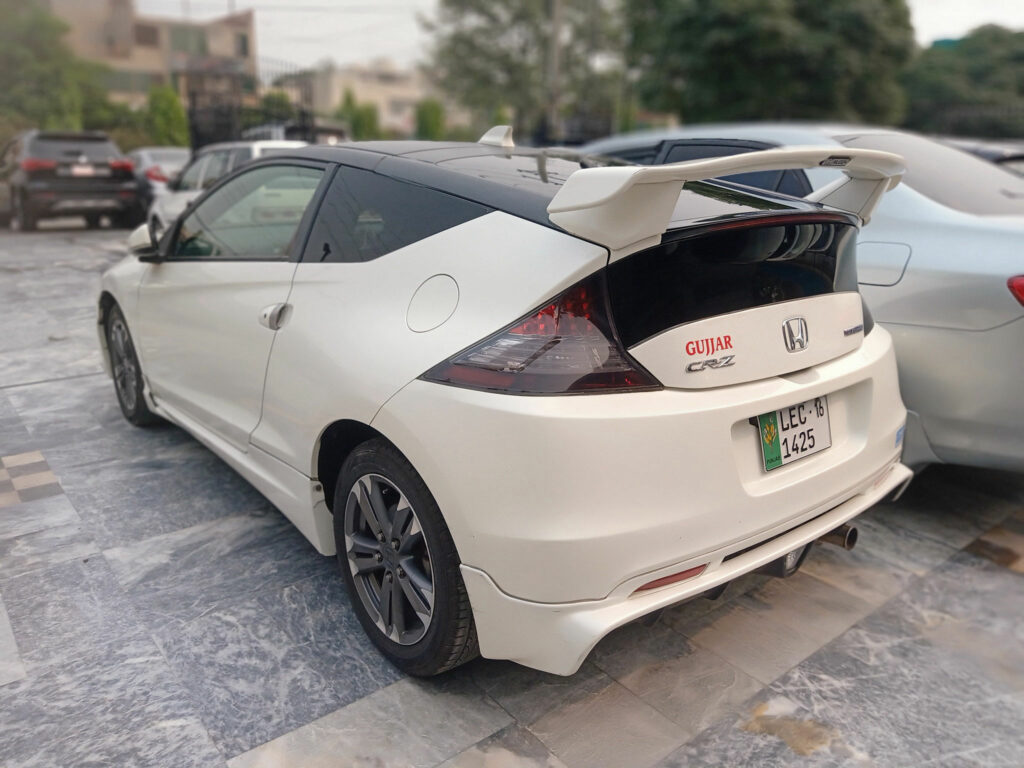
Honda may have sold a few more of these vehicles in Pakistan if the pricing had been a little lower. It is still very rare to see the CR-Z on our roads but one may come across a random one mostly running in posh areas of big cities. Funnily enough most of these Honda CR-Z units are 2010-2012 models that arrived here as JDM imports, while those sold by Honda Atlas between 2013 and 2016 are a rare find.

A computer animation professional with over 23 years of industry experience having served in leading organizations, TV channels & production facilities in Pakistan. An avid car enthusiast and petrolhead with an affection to deliver quality content to help shape opinions. Formerly written for PakWheels as well as major publications including Dawn. Founder of CarSpiritPK.com

